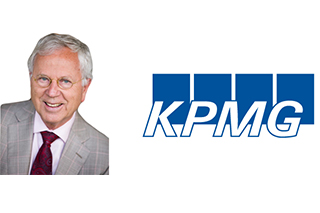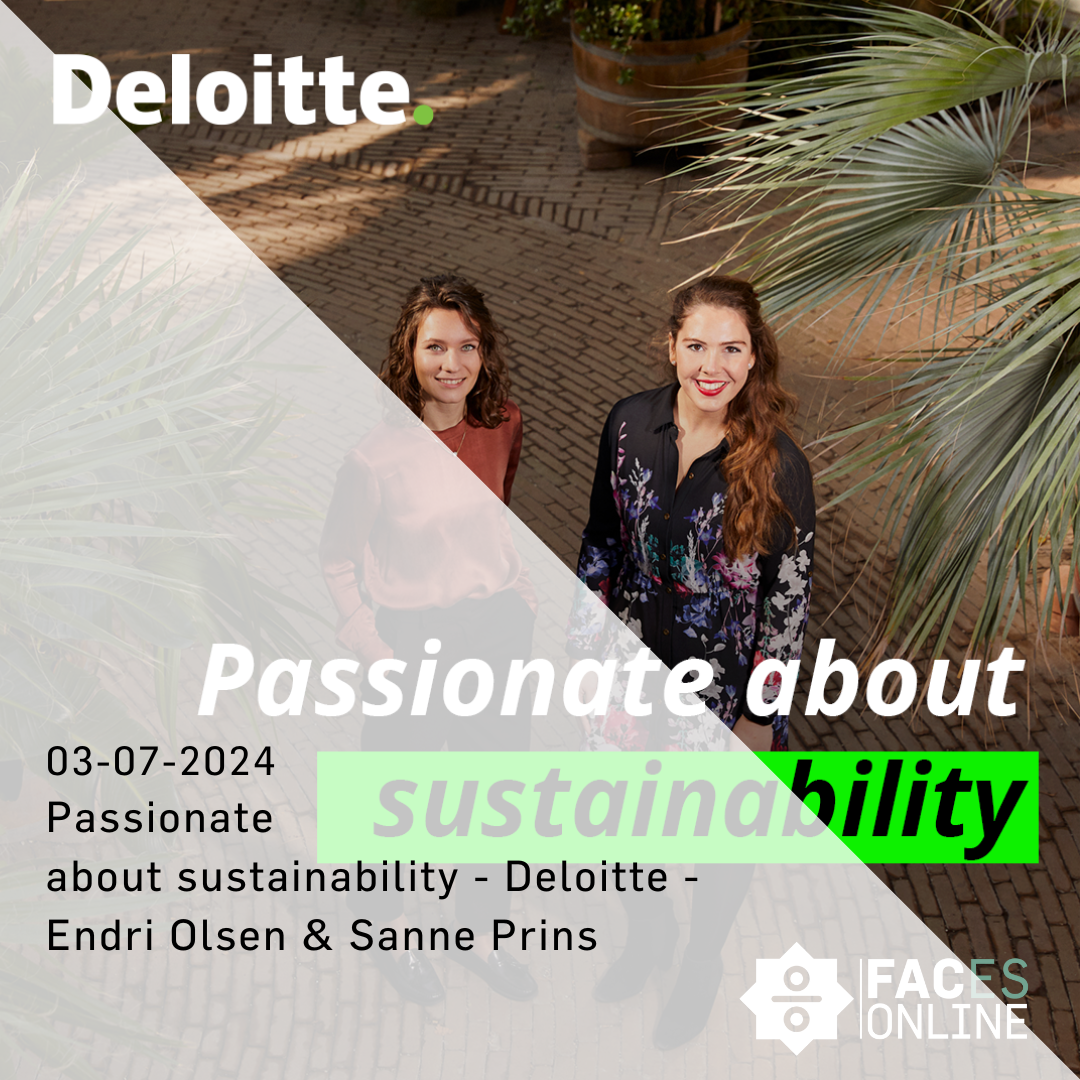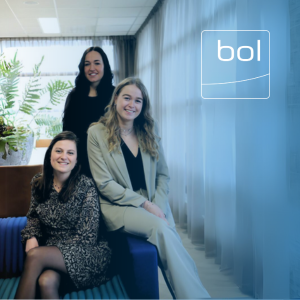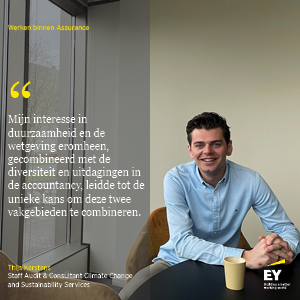'Developments in the field of sustainability are moving fast. Being part of that, helping clients get ready and making an impact, is something we are


An exclusive interview with Jan Hommen. He gives his opinion on a variety of topics like the developments within KPMG and what he would like to achieve during his time as CEO. He talks about the future of the accounting profession in general. Moreover, he reveals his view on whether to overhaul the current partner-model within accountancy. Furthermore, he explains his career and working experiences.
What did you study at Tilburg University and how was your time here?
I started my studies in 1963 and graduated in 1970. Before I started my studies I was an officer in the military. During my studies I worked and I practiced lot of sports, which did not always correspond with my study schedule.
And after your studies here, how did your career develop?
After my studies I became controller and later on Financial Director at LIPS Aluminum in Drunen, which later became Alcoa Nederland. I then worked at Alcoa’s head office based in the US for 20 years; the last 6 years as CFO. From there I moved to Philips as CFO and Vice Chairman of the board for eight years. After retirement I accepted several board positions, for instance Ahold, TNT, Reed Elsevier, the hospital of Maastricht University, Tias and ING. I have been Chairman of the board for many of these organizations. Starting early 2009 ING requested me to lead them through the financial crisis, which I did in the position as CEO until October 2013.
After starting as external advisor to the Board of Management of KPMG in May 2014, I became their CEO in June 2014.
How do you remember your time as CEO of the ING group?
It was a difficult, but also a very exciting time, and a lot of work had to be done. The impact of the crisis was felt deeply. We had to incorporate many measures that were imposed by the European Commission due to the fact that ING had received financial support from the Dutch government. It was a difficult task because we were required to reorganize, restructure and reduce the size of the entire company. To split up the company ING executed around 1100 projects. Today, I believe ING is worth around €44 billion, this contrasts to its value of around €10 billion when I initially started my tenure. So it is clear that ING’s value expansion has been exponential over this period. Despite the difficult circumstances at the time, I believe we made ING a very strong bank, which is well positioned in Europe today.
Recently it was announced that ING chose KPMG as auditors, do you think it has anything to do with your position now at KPMG?
No nothing at all. The procedure to search for a new auditor began just after I had left ING and at KPMG I deliberately did not participate at all in the process.
You have made a lot of changes at ING, what do you think will be the difference with KPMG?
The task at ING involved a financial restructuring of the balance sheet and also splitting up and disposing of large parts of the company. KPMG has more of a reputation and cultural problem. We need to revamp the governance and put strong leadership in place. When you have your own internal people on the board overviewing an organization for a long time, the standards and culture of the organization erodes. We are now shifting to a governance structure with greater emphasis on external supervision, transparency and open communication that will help develop a higher level of professional management within the company.
Will KPMG be governed from outside the company?
We have already appointed two external Board members, a CFO and an HR Officer. In my opinion, for an organization as KPMG, it is necessary to have HR on the Board which, until now, was never the case. The Supervisory Board will be made up exclusively with external people and will supervise the Board of Management and the organization. They will nominate, dismiss, reward and monitor the board and ensure the process is in place so that the right partners are appointed. Besides these changes to the Board, several other change processes have been put into place, in which many KPMG volunteers cooperate and contribute. Changes involve our culture, the improvement of quality, the business model, regaining public trust, remuneration, governance and communication.
The changes were also initiated due to the report by the AFM and the report ‘In the public interest’. What do you think of these reports?
The reports were quite clear; a lot of things went wrong in the past. The audit quality control process, whether on an individual level or as a system as a whole, needs to be of better standards.
Quality is a zero tolerance issue: we cannot accept poor quality performance. Last May, we started analyzing KPMG and the areas that needed changing. This analysis shows parallel results to the AFM report and has prompted the implementation of new methods to overcome issues within the KPMG workforce. At KPMG we want to set the standard and become the new norm for our sector within three years.
Nowadays firms must change auditors within 8 years, which probably will be 10. What is your opinion about this?
I agree that this should be done occasionally; however, I believe it is inconvenient that this must happen all at the same time in some cases as I fear that the quality of audits might decrease due to a lack of knowledge of the operational activities of a company within other firms.
Is the accounting profession a disappearing profession by the rise of IT?
No, I do not think so. The accounting profession shifts naturally with the development of technology. There is a need to review processes. Therefore, the core activities and the need for an auditor will remain. The methods of auditing will change through the use of more advanced electronic tools. The need to understand how a company’s core operations work will always remain. Soft processes and controls cannot be replaced by digital technology and we, as professionals, will develop to become even smarter in our approach to identifying which enterprise models will work and which will not. However, the hard controls can and will be traded in for IT mechanisms. Another key part to this profession is analyzing and reviewing: that is, drawing conclusions and making decisions which cannot easily be replaced by a computer.
Do you think a clearing institution needs to be established in order to determine all the audit practices?
No, this is a proposal where the government will do everything. The government needs to let the sector be responsible for everything being carried out correctly. I believe that a free market is the best way to allocate scarce resources. It is not effective if the government intervenes. The competition in the market is already an incentive to do better and deliver high quality. This will disappear if the government disrupts the market with its own influences.
Do you think the current partner-model within accountancy should be overhauled?
To be honest, I have considered it. But in fact, the structure of a partnership is the best form of an organization, if everyone complements each other. Partners do however, have the responsibility to collaborate together and not lay off their responsibilities to one another. The structure of a partnership can be effective so long as there are enough checks and balances. At KMPG we will realize this by bringing in an external Supervisory Board. The structure does not work however, when partners are too focused on one aspect, for instance the financial one and are not concerned enough for their clients; that needs to be fixed. Ideally you keep a partnership, but make sure checks and balances are implemented in order to allow the firm to function as efficiently and effectively as possible and at high standards of quality. At KPMG we have four pillars: people, clients, the environment and operations, all which we manage to balance. If these pillars are carried out effectively, the financial results will follow naturally.
What will the accountancy world look like in 10 years?
Nobody knows. If somebody knows, it would be a very gifted person and I would treasure him. We can only think six months to a year ahead and this is already very difficult to do. However, developments are progressing. The soft skills, big data and data analytics will become more imperative. The audit will be simplified; however the standards and requirements of the profession will be higher. Therefore we need to continue to focus on quality and innovation.
What is your advice to the students of Tilburg University?
My advice would be: enjoy your time at university because it is an amazing period. Learn from each other; use your time to do things besides studying; travel, do sports, charity and work. And when you start working, enjoy it. As an accountant you should be a team player and be able to motivate, coach and get to know people. It is more than just bookkeeping. This aspect will be replaced by technical systems. Make sure you keep it exciting and keep innovating. Walk ahead in developments and stay positive.





















